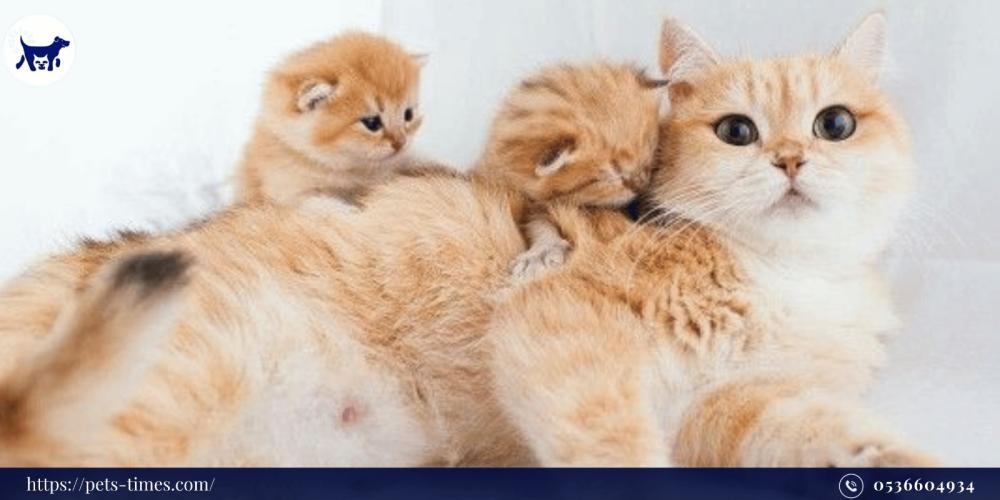After your cat gives birth, her care requires special attention to ensure her health and the health of her kittens, so learn how to care for a cat after giving birth through the Pets Time store.
Taking care of your cat after giving birth is very important to ensure her health and the health of her kittens. The cat needs a quiet and safe environment to rest and recover, in addition to a diet rich in vitamins and minerals to support the lactation and recovery process. Moreover, good care also includes monitoring her health regularly and ensuring that there are no complications after giving birth, as proper care contributes to maintaining the cat's health.
How to care for a cat after giving birth:
There are basic steps to ensure her comfort and the health of her young ones, and these steps include:
- Providing a healthy and calm environment:
It is important to provide a quiet, safe place for the mother cat so that she feels safe and can care for her kittens.
- Rest and adequate sleep:
Make sure the mother cat has a quiet place to sleep and rest between feedings.
- Providing healthy food:
Make sure to feed the mother cat healthy food so she can eat what she needs to support her health.
- Providing clean water:
Clean water should be close by for the mother cat to drink regularly.
- Personal care:
The mother cat needs your help in cleaning her body using a cloth dampened with lukewarm water to remove traces of birth.
- Follow up with your veterinarian:
It is important to consult a veterinarian after birth to ensure the health of the mother and her young and to receive the necessary advice for their care.
Some important tips for caring for the mother cat and taking care of the kittens:
The most important steps for caring for a cat after giving birth:
- feeding
Caring for kittens depends on several factors such as their age and the condition of the mother. If the kittens are separated from their mother, food, warmth and assistance with their needs must be provided.
- Feeding the mother constantly
It is important to provide food and shelter for the mother cat and if the mother is interested in caring for her kittens, let her do her natural role.
- Weigh the cat constantly.
Weigh your cats weekly to ensure they are getting enough food and gaining weight properly.
- Leave the young with the mother for the first week.
Let the mother take care of the young alone. In case of repeated pregnancies or the mother rejects the young, you can help her, but keep her close to her children.
- Make a comfortable place for the little ones.
Provide a warm, dry place to sleep away from hazards. You can also use a cat carrier and move it around with clean towels to ensure comfort and safety.
- Encourage them to use the litter box from 4 weeks of age.
Encourage cats to use the litter box by placing each cat in the box after each meal to train them to use it.
The most prominent problems of cats after giving birth and their treatment
- Bleeding after childbirth:
The cat may suffer from severe bleeding after giving birth, which is often the result of an internal problem. In this case, immediate medical intervention is required to treat the problem.
- Lethargy and weakness:
Some cats may suffer from lethargy and lack of activity after giving birth due to lack of proper nutrition, so it is necessary to provide healthy and balanced food to strengthen their health.
- Constipation:
Some cats experience digestive problems after giving birth, such as constipation, which is why they should be given foods rich in fiber to improve digestion and speed up defecation naturally.
- Breast infections:
Breast infections are common after childbirth and are manifested by swelling and discoloration of the area. Therefore, the breast area must be cleaned and sterilized and topical treatments recommended by the doctor must be provided.

